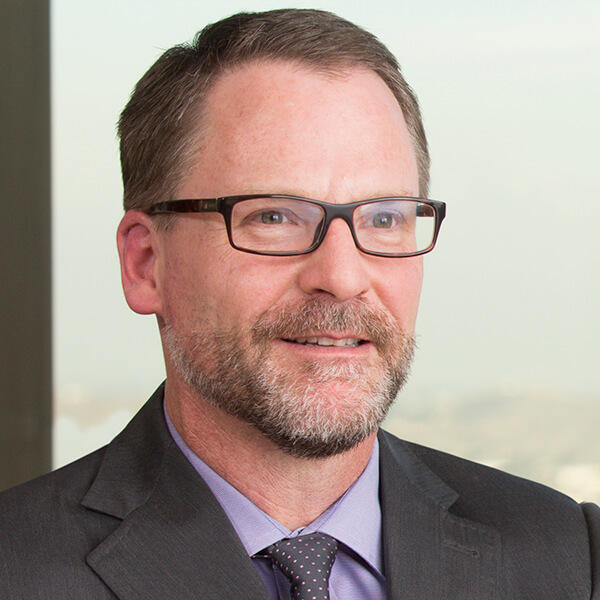Capital IdeasTM
Investment insights from Capital Group
Fixed Income
With high levels of inflation persisting across much of the world, many central banks are embarking on interest rate hiking campaigns to combat rising inflation. Although we are starting to see central banks raise interest rates, compared to pre-global financial crisis market conditions, yields remain relatively low across many of the world’s major economies. As a result, fixed income investors have found the search for income a constant challenge over the past decade.
In this Q&A, portfolio manager and principal investment officer (PIO) of Capital Group’s Global High Income Opportunities (GHIO) strategy, Robert Neithart, shares with readers how a pioneering approach that combines emerging market (EM) debt and corporate high-yield bonds into a single investment universe can potentially deliver a consistent high level of income1.
GHIO’s approach to combine EM debt and corporate high-yield securities was an innovative one when the strategy was established; how did it come about?
We developed the Global High Income Opportunities strategy2, on which our Luxembourg-domiciled fund3 is based, in 1998 when we realised that many of our best investment ideas actually shared the same characteristics. This was despite the fact that these ideas came from different market segments and areas that many preferred to manage separately.
At its origin, GHIO was focused on two asset classes: high-yield corporate debt and EM debt. The type of research that leads to good judgments in EM debt was actually similar to the work required in the corporate high-yield space. That is because both sectors often react similarly towards changes in the underlying macro environment.
But as the sectors developed, so did GHIO. It has a primary emphasis on a broad range of sectors within the higher-yielding spectrum of the fixed income universe. This all-currency investment universe includes EM corporate bonds.
Even today, many strategies claim to access a global high income opportunity set but only focus on corporate high-yield bonds. We believe that GHIO is unique in capturing the opportunities arising from the broad universe of EM debt and corporate high-yield bonds.
GHIO investment universe
A diverse and growing opportunity set of higher-yielding securities
.jpg)
Segment sizes are for illustrative purposes only and are not representative of actual portfolio holdings. EM: emerging markets. EM bonds can also include frontier markets and European peripherals as countries that are supported by International Monetary Fund programmes.
Why EM debt and corporate high-yield bonds?
GHIO was developed with the vision that corporate high-yield bonds and EM debt offer similar risk-return profiles, but follow different market cycles. By investing flexibly across these asset classes, we could offer greater diversification and potentially generate more consistent returns.
In addition, corporate high-yield and EM debt have been higher yielding sectors historically, with total return usually driven by income, a normally stable source of return. There is also potential for capital appreciation from some combination of lower yields, tighter credit spreads and strengthening EM currencies.
1. Refers to Capital Group Global High Income Opportunities (LUX) 10-year average annual distribution income of 7.1% over the period 31 December 2011 to 31 December 2021. Source: Capital Group
2. The inception of Capital Group Global High Income Opportunities strategy was 31 May 1998.
3. The inception of Capital Group Global High Income Opportunities (LUX) was 7 May 1999.
Risk factors you should consider before investing:
- This material is not intended to provide investment advice or be considered a personal recommendation.
- The value of investments and income from them can go down as well as up and you may lose some or all of your initial investment.
- Past results are not a guide to future results.
- If the currency in which you invest strengthens against the currency in which the underlying investments of the fund are made, the value of your investment will decrease. Currency hedging seeks to limit this, but there is no guarantee that hedging will be totally successful.
- The Prospectus and Key Investor Information Document set out risks, which, depending on the fund, may include risks associated with investing in fixed income, derivatives, emerging markets and/or high-yield securities; emerging markets are volatile and may suffer from liquidity problems.
Our latest insights
-
-
Asset Allocation
-
-
Interest Rates
-
Global Equities
RELATED INSIGHTS
Past results are not predictive of results in future periods. It is not possible to invest directly in an index, which is unmanaged. The value of investments and income from them can go down as well as up and you may lose some or all of your initial investment. This information is not intended to provide investment, tax or other advice, or to be a solicitation to buy or sell any securities.
Statements attributed to an individual represent the opinions of that individual as of the date published and do not necessarily reflect the opinions of Capital Group or its affiliates. All information is as at the date indicated unless otherwise stated. Some information may have been obtained from third parties, and as such the reliability of that information is not guaranteed.
Capital Group manages equity assets through three investment groups. These groups make investment and proxy voting decisions independently. Fixed income investment professionals provide fixed income research and investment management across the Capital organization; however, for securities with equity characteristics, they act solely on behalf of one of the three equity investment groups.
 Rob Neithart
Rob Neithart